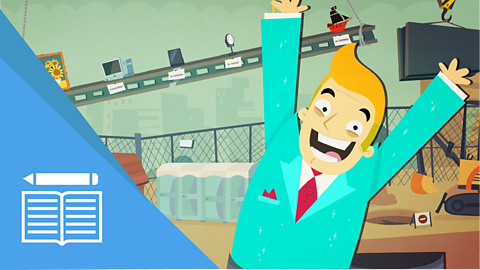What are adjectives?
An adjective is a describing word. It gives you more information about a noun such as its colour, size or age. Big, small and tall are all adjectives.
Watch the video to understand more about how to use adjectives in French. Can you spot how they are different to English adjectives?
Learn about adjectives in French with Burt Bessington
Dad: Urgh, what a lovely day for a…
Burt: GAMESHOW!
I'm your host, Burt Bessington and welcome to Words of the World!
In this round, all you've got to do is place the marker on the word you think is the adjective.
Simple right?
But look out! The spelling of an adjective changes to match the gender of the noun. This is called an agreement.
If you spot one, ring the agreement buzzer for an extra bonus point.
Mum: Le chat noir
Burt: Correct!
In English, the adjective goes before the noun, but in French, it usually comes after it. A bit like saying 'the cat black’.
Boy: Le ballon vert
Burt: Correct again! You guys are on a roll!
Dad: La voiture verte
Boy: But Dad, 'green' is spelt differently.
Mum: Ooh, ooh! It's an…
All: AGREEMENT!
Burt: Correct!
And you win the bonus point for spotting the agreement.
As voiture is a feminine noun, the spelling of the adjective changes to agree with it. Can you spot the spelling change?
For feminine nouns vert changes to verte!
Dad: Le petit chien
Burt: Ooh sorry, wrong answer.
Some adjectives come BEFORE a noun, including ones which say an object's size.
And that's the end of the quiz. Didn't they do well?
You've won this luxury three-piece sofa set!
How do adjectives ‘agree’ with the noun?
Just as a noun can be masculine or feminine, the adjective also has a masculine and feminine form in French. Adjectives can also change in French if the noun is plural, when there is more than one item.
This means that the spelling of the adjective changes to match the gender and number of the noun. This is called an agreement.
The endings for regular adjectives are as follows:
| form | ending |
|---|---|
| masculine singular | no change |
| feminine singular | -e |
| masculine plural | -s |
| feminine plural | -es |

Let's take the adjective Sorry, something went wrongCheck your connection, refresh the page and try again. (green) as an example:
Sorry, something went wrongCheck your connection, refresh the page and try again. is a masculine noun, so when you describe it, the adjective also needs to be in the masculine form so it doesn't change:
- Sorry, something went wrongCheck your connection, refresh the page and try again. – the green ball
Sorry, something went wrongCheck your connection, refresh the page and try again. is a feminine noun, so when you describe it, the adjective also needs to be in the feminine form so we add an e:
- Sorry, something went wrongCheck your connection, refresh the page and try again. – the green car
If there is more than one object, for masculine nouns we add s to the end of the adjective:
- Sorry, something went wrongCheck your connection, refresh the page and try again. – the green balls
For feminine nouns, add es:
- Sorry, something went wrongCheck your connection, refresh the page and try again. – the green cars

Adjectives of colour
Regular adjectives
Some adjectives of colour have regular endings like vert. Bleu (blue) and noir (black) follow the same pattern as above.
| masculine singular | feminine singular | masculine plural | feminine plural | English |
|---|---|---|---|---|
| Sorry, something went wrongCheck your connection, refresh the page and try again. | Sorry, something went wrongCheck your connection, refresh the page and try again. | Sorry, something went wrongCheck your connection, refresh the page and try again. | Sorry, something went wrongCheck your connection, refresh the page and try again. | blue |
| Sorry, something went wrongCheck your connection, refresh the page and try again. | Sorry, something went wrongCheck your connection, refresh the page and try again. | Sorry, something went wrongCheck your connection, refresh the page and try again. | Sorry, something went wrongCheck your connection, refresh the page and try again. | black |
Irregular adjectives
Some adjectives of colour are irregular, so they don’t follow the same pattern as the regular adjectives.
These don’t just add an e in the feminine form:
| masculine singular | feminine singular | masculine plural | feminine plural | English |
|---|---|---|---|---|
| Sorry, something went wrongCheck your connection, refresh the page and try again. | Sorry, something went wrongCheck your connection, refresh the page and try again. | Sorry, something went wrongCheck your connection, refresh the page and try again. | Sorry, something went wrongCheck your connection, refresh the page and try again. | white |
| Sorry, something went wrongCheck your connection, refresh the page and try again. | Sorry, something went wrongCheck your connection, refresh the page and try again. | Sorry, something went wrongCheck your connection, refresh the page and try again. | Sorry, something went wrongCheck your connection, refresh the page and try again. | purple |
Gris already ends in an s, so we don't add another s in the masculine plural form.
| masculine singular | feminine singular | masculine plural | feminine plural | English |
|---|---|---|---|---|
| Sorry, something went wrongCheck your connection, refresh the page and try again. | Sorry, something went wrongCheck your connection, refresh the page and try again. | Sorry, something went wrongCheck your connection, refresh the page and try again. | Sorry, something went wrongCheck your connection, refresh the page and try again. | grey |
Some adjectives already have an e on the end in the masculine form, so they look the same in the feminine:
| masculine singular | feminine singular | masculine plural | feminine plural | English |
|---|---|---|---|---|
| Sorry, something went wrongCheck your connection, refresh the page and try again. | Sorry, something went wrongCheck your connection, refresh the page and try again. | Sorry, something went wrongCheck your connection, refresh the page and try again. | Sorry, something went wrongCheck your connection, refresh the page and try again. | red |
| Sorry, something went wrongCheck your connection, refresh the page and try again. | Sorry, something went wrongCheck your connection, refresh the page and try again. | Sorry, something went wrongCheck your connection, refresh the page and try again. | Sorry, something went wrongCheck your connection, refresh the page and try again. | yellow |
| Sorry, something went wrongCheck your connection, refresh the page and try again. | Sorry, something went wrongCheck your connection, refresh the page and try again. | Sorry, something went wrongCheck your connection, refresh the page and try again. | Sorry, something went wrongCheck your connection, refresh the page and try again. | pink |
These are exceptions and don’t change at all!
| masculine singular | feminine singular | masculine plural | feminine plural | English |
|---|---|---|---|---|
| Sorry, something went wrongCheck your connection, refresh the page and try again. | Sorry, something went wrongCheck your connection, refresh the page and try again. | Sorry, something went wrongCheck your connection, refresh the page and try again. | Sorry, something went wrongCheck your connection, refresh the page and try again. | orange |
| Sorry, something went wrongCheck your connection, refresh the page and try again. | Sorry, something went wrongCheck your connection, refresh the page and try again. | Sorry, something went wrongCheck your connection, refresh the page and try again. | Sorry, something went wrongCheck your connection, refresh the page and try again. | brown |
Where do adjectives go?
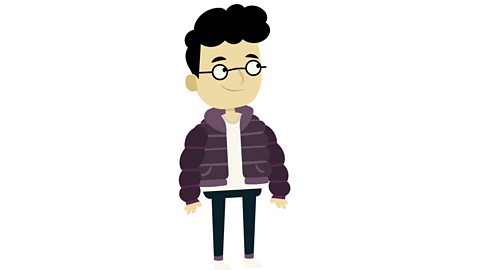
In English, the adjective becomes before the noun, but in French, it usually comes after the noun.
Sorry, something went wrongCheck your connection, refresh the page and try again. – the green ball
Sorry, something went wrongCheck your connection, refresh the page and try again. – the green car
Sorry, something went wrongCheck your connection, refresh the page and try again. – the black cat
Sorry, something went wrongCheck your connection, refresh the page and try again. – the black car
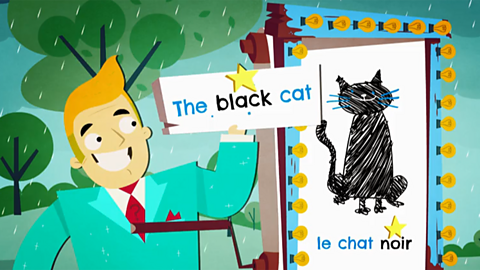

There are some exceptions, where some adjectives come before the noun in French. These are known as BAGS adjectives. BAGS stands for:
- Beauty
- Age
- Goodness
- Size
For example:
Sorry, something went wrongCheck your connection, refresh the page and try again. – the small dog
Sorry, something went wrongCheck your connection, refresh the page and try again. – the big cat
Here are some more BAGS adjectives that go before the noun:
| Beauty | Age | Goodness | Size |
|---|---|---|---|
| beau / belle (beautiful) | vieux / vieille (old) | bon / bonne (good) | grand(e) (big) |
| joli(e) (pretty) | jeune (young) | mauvais(e) (bad) | petit(e) (small) |
| nouveau / nouvelle (new) | meilleur(e) (better) | haut(e) (high) |

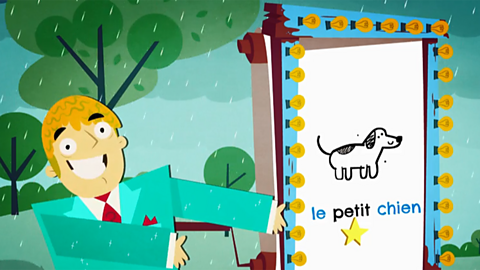
Key French words
| French | English |
|---|---|
| Sorry, something went wrongCheck your connection, refresh the page and try again. | the ball |
| Sorry, something went wrongCheck your connection, refresh the page and try again. | white |
| Sorry, something went wrongCheck your connection, refresh the page and try again. | blue |
| Sorry, something went wrongCheck your connection, refresh the page and try again. | the cat |
| Sorry, something went wrongCheck your connection, refresh the page and try again. | grey |
| Sorry, something went wrongCheck your connection, refresh the page and try again. | yellow |
| Sorry, something went wrongCheck your connection, refresh the page and try again. | brown |
| Sorry, something went wrongCheck your connection, refresh the page and try again. | black |
| Sorry, something went wrongCheck your connection, refresh the page and try again. | orange |
| Sorry, something went wrongCheck your connection, refresh the page and try again. | rouge |
| Sorry, something went wrongCheck your connection, refresh the page and try again. | green |
| Sorry, something went wrongCheck your connection, refresh the page and try again. | purple |
| Sorry, something went wrongCheck your connection, refresh the page and try again. | the car |
More on Language skills: Knowledge about language
Find out more by working through a topic
- count3 of 4
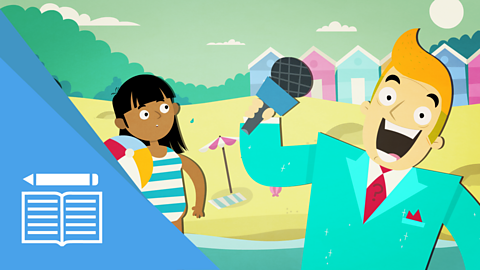
- count4 of 4
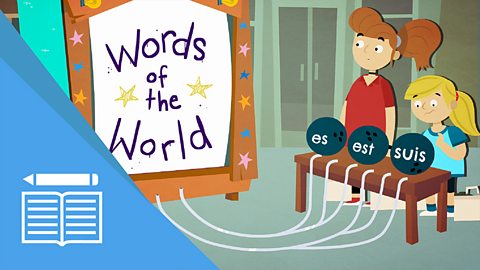
- count1 of 4
